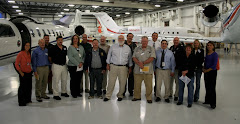Robotics is booming, but education lags
By Brendan Lynch
Massachusetts’ robotics cluster is thriving despite the recession — but the state is in danger of losing its edge due to the scarcity of collegiate robotics programs. Colleges like MIT, Harvard University, the Franklin W. Olin College of Engineering, Worcester Polytechnic Institute and the University of Massachusetts Lowell, combined with the local venture capital community, give Massachusetts an advantage over other formidable clusters, such as one in Pittsburgh, with Carnegie Mellon University’s Robotics Institute, according to Heartland Robotics Inc. chairman, founder and CTO Rodney Brooks. Public policy groups such as the Massachusetts Technology Leadership Council’s robotics cluster also help, Brooks said.Still, higher education has become a “choke point” between high school programs like entrepreneur Dean Kamen’s FIRST Robotics Challenge and the companies that form the robotics industry, according to David Barrett, a robotics professor at Olin and a member of the MassTLC cluster’s academic subcommittee.“We have 40,000 kids who want to want to work in robotics, and 40,000 jobs, but only a few hundred spots in between,” he said.
Though schools — most recently WPI — continue to add robotics programs, the U.S. has fallen behind South Korea in training roboticists and could risk losing the industry like it did shipbuilding, Barrett said.In the meantime, Brooks, also a co-founder of iRobot Corp., said the recession is a good time to be a funded company in development, like Heartland. There are a lot of skilled workers on the market, he said, and long-term demographics should be more important than the recession to robotics companies’ prospects. With the work force graying, demand for robotics will increase across all aspects of life, Brooks said.“I like to think in 50-year arcs,” he joked.
Even if Brooks is right, robots may seem less visible even as they become more ubiquitous. As an example, Brooks offered Woburn-based Kiva Systems Inc., which he said refactored the problem of fulfillment-center operation, without replacing human workers. Even cuts in defense may help rather than hurt the robotics industry, Brooks said. Earlier this week, U.S. Secretary of Defense Robert Gates announced plans to cut big weapons programs such as the F-22 fighter jet. But Brooks said a shift away from Cold War-era programs could benefit cheaper options such as robotics. Looking to take advantage of networking opportunities, Amherst, N.H.-based MobileRobots Inc. joined the MassTLC cluster this month, according to CEO Jeanne Dietsch. She sees geographical informations systems technology creating a “huge” opportunity in the homeland security space. The government owns a lot of buildings it doesn’t know much about, Dietsch said, providing a potential market for mapping robots such as her company’s MapperBot.
This is a Site for sharing information related to any aspect of Technology Education being taught in Connecticut Public Schools. Feel Free send me anything you think others would be interested in seeing. Email:Gkane@aol.com
CTELC Oxford Airport October 2009

photo by Jeff Goodin
2009 Teacher of the Year

2009 CT Technology Education teacher David Ruddick (far right) receives plaques from CTEA President Gerry Stevens as Past President Paul Hoffman and ITEA President Ed Denton looks on.
